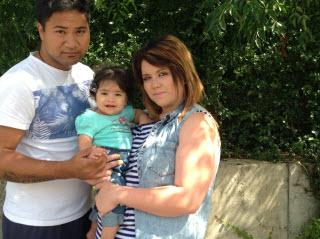- Home
- News
- Screening Matters, Issue 45, April 2014
- Newborn hearing screening picks up profound hearing loss
News
- Screening Matters Newsletter
- April 2019
- April 2018
- December 2017
- August 2017
- April 2017
- December 2016
- October 2016
- March 2016
- November 2015
- August 2015
- June 2015
- April 2015
- February 2015
- December 2014
- October 2014
- August 2014
- June 2014
- April 2014
- February 2014
- December 2013
- October 2013
- August 2013
- June 2013
- April 2013
- February 2013
Screening Matters
The National Screening Unit newsletter
In this issue:
- Newborn hearing screening picks up profound hearing loss
- Health literacy study has learnings for cervical screening
- NCSP coverage rate nears 80 percent target
- Newborn Metabolic Screening Programme Monitoring Update
- Screening for Down syndrome and other conditions - information for practitioners
- Pacific Radiology new Southern district breast screening provider
- NCSP monitoring reports now available
- National breast cancer conference in June
Newborn hearing screening picks up profound hearing loss

Little Peyton-Rose Slattery Holtz recently celebrated her first birthday, and what a year it’s been for her, mum Rochae, and dad Junior.
Peyton-Rose had her hearing tested in hospital within days of being born, just as her parents were about to take her home.
“The test picked up that she wasn’t hearing anything,” says Rochae. More testing and specialist appointments followed at The Hearing House in Auckland – a charity for deaf children and their families – where the family received the news that Peyton-Rose was profoundly deaf.
“Although by then we were half expecting it, it was still a shock. The first day I was pretty cut up about it, but then I pulled myself together.”
The diagnosis set in motion a range of support for Peyton-Rose and her family, including hearing aids. Unfortunately, these made no difference and she received a cochlear implant when she was eight months old.
This surgically implanted electronic device bypasses damaged hair cells in the inner ear and directly stimulates the auditory nerve. The brain experiences this stimulation as sound sensation.
Rochae says the implant has made a big difference to the family. “When Peyton-Rose was younger she cried loudly and wouldn’t respond to any voices or other noises around her. Now she talks quietly and will even respond to birds outside. Even when she’s sleeping and gets a bit upset, I can talk gently to reassure her without having to pick her up.
“She didn’t used to like playing with her toys because a lot of baby toys make sound, but she loves her toys now, especially anything that makes music. She also loves her dad playing his guitar and singing to her.”
Peyton-Rose attends weekly auditory-verbal therapy sessions at The Hearing House.
Auditory-verbal therapy accelerates the natural way a child would develop language to enable deaf children with a cochlear implant or hearing aid to catch up on listening and language development. The aim is for the child to speak clearly and naturally like their hearing peers and to attend mainstream school by the age of five.
The Hearing House’s chief executive Scott Johnston says international research, along with evidence collected from the charity’s caseload, shows outcomes are significantly improved for hearing-impaired children when the hearing loss is detected soon after birth.
“Screeners can literally have a life-changing impact on a hearing-impaired child’s life as early diagnosis means – if parents choose hearing aids or a cochlear implant – that the language gap for that child is much less than if their hearing loss had been diagnosed two or three years later.
“Peyton’s story and progress so far – she is now saying the word ‘cat’, becoming more vocal and understanding words – emphasises the importance of accurate newborn hearing screening and competent follow-up and referral.”
Rochae says she’s so grateful that Peyton-Rose’s deafness was picked up initially through newborn hearing screening. “Otherwise it might have been six months before we noticed something was wrong and she wouldn’t have received her implant or therapy as early.
“It’s a huge relief to see that she’s almost catching up to kids that can hear. Life’s great now.”
Each year, it is estimated that between 135 and 170 babies are born in New Zealand with mild-to-profound permanent congenital hearing loss.
The national newborn hearing screening programme aims to identify newborns with hearing loss early so they can access appropriate assistance as soon as possible, leading to better outcomes for these children as well as their families/whānau and society.
The programme’s goals are described as "1-3-6":
1 - Babies to be screened by one month of age
3 - Audiology assessment completed by three months of age
6 - Initiation of appropriate medical and audiological services, and early intervention education services, by six months of age.
To receive the Screening Matters newsletter by email, fill out our sign-up form.

